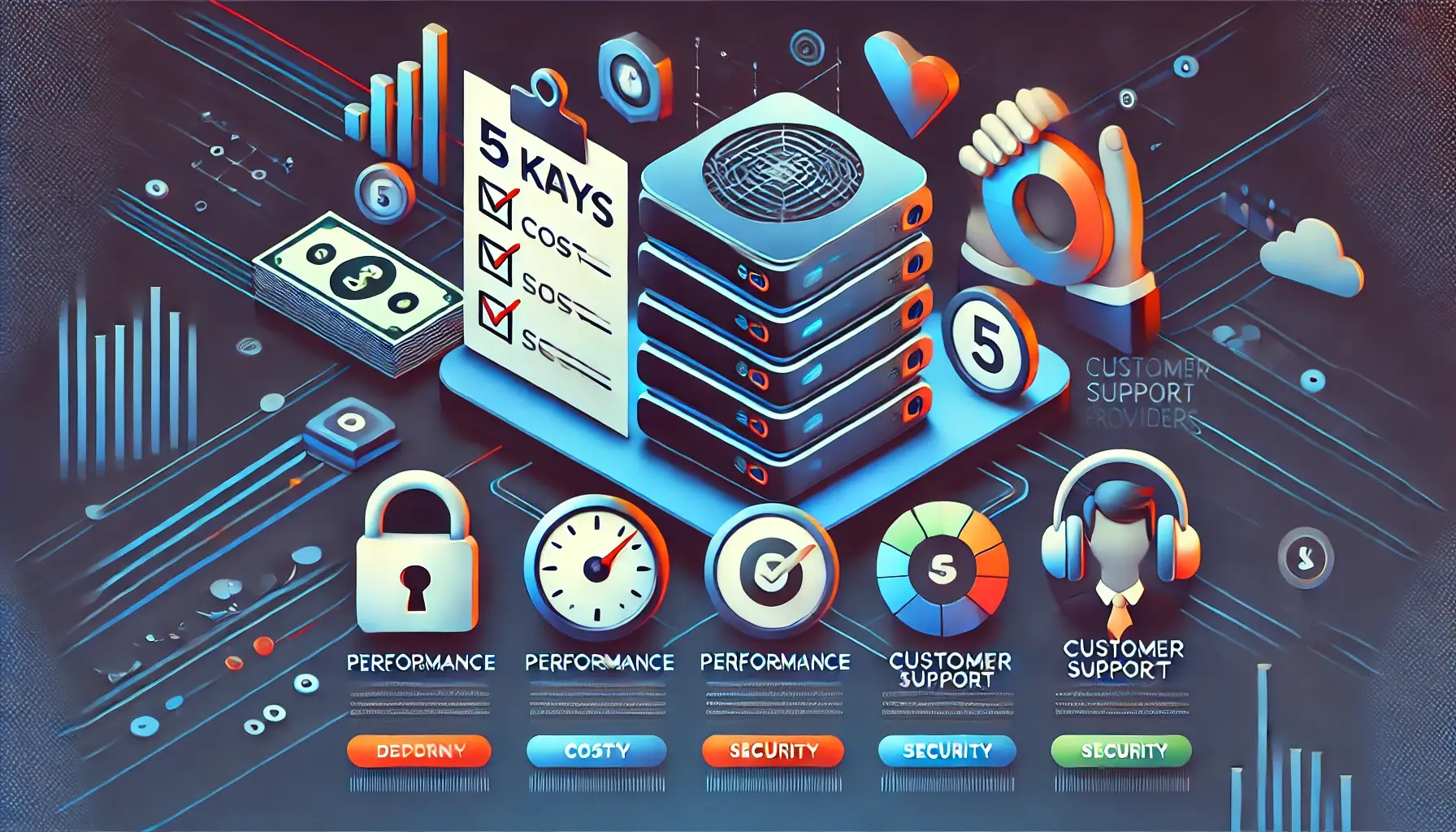Table of Contents
5 Things to Consider Before Switching Hosting Providers
Switching hosting providers is a big decision, and it’s not one to take lightly. Whether you’re looking for better performance, enhanced security, or simply better customer support, making the switch can significantly affect your website. But before you jump ship, there are several key factors to consider to ensure a smooth transition. In this post, we’ll dive into five crucial aspects to weigh before switching hosting providers.
1. Website Performance and Uptime
Your website’s performance is vital to user experience and search engine rankings. A slow-loading website or frequent downtime can drive visitors away and harm your reputation. Before choosing a new hosting provider, research their server reliability and uptime guarantee.
Most reputable hosting providers will offer an uptime of 99.9%, but not all can live up to that promise. Look at customer reviews, check independent uptime monitoring reports, and find out what measures the host takes to ensure optimal performance. You want a provider that has the infrastructure to handle your traffic without sacrificing speed, even during peak times.
Why is Uptime So Important?
Uptime measures how often your website is accessible online. If your site is down frequently, you could lose valuable traffic, potential sales, and search engine rankings. Google also takes website speed and downtime into account when determining where to place your site in its search results, so this is a factor you should never overlook.
2. Customer Support Quality
Customer support is a critical factor when switching hosting providers. Issues will inevitably arise, whether it’s a technical glitch, security concern, or a need to upgrade your plan. How quickly and efficiently your hosting provider’s support team resolves those issues can make a huge difference.
Look for hosting companies that offer 24/7 customer support through multiple channels like live chat, phone, and email. Before making your decision, test their responsiveness. Send a support request or inquire about their services to gauge how quickly they respond and how helpful their answers are.
Having a knowledgeable and responsive customer support team at your fingertips can save you a lot of headaches, especially during critical moments like migration or downtime.
3. Data Backup and Security
When considering a switch, data backup and security should be top priorities. Losing website data can be devastating for any business, and without a reliable backup system in place, you could lose valuable content, customer information, or even the entire site.
Ensure that your new hosting provider offers automatic backups. Ideally, you’ll want daily or weekly backups, depending on how frequently your content changes. Additionally, ask about how long backups are stored and how easy it is to restore your data in the event of a problem.
Security Features to Look For
Aside from backups, evaluate the security features of your prospective hosting provider. Does the company offer SSL certificates, DDoS protection, firewalls, and malware scanning? With cyber threats increasing, security should be a non-negotiable aspect of your decision. Look for hosts that prioritize security by providing built-in security tools and proactive monitoring.
4. Scalability and Resources
Your website may start small, but it’s important to choose a hosting provider that can grow with you. Scalability is key when your site traffic or needs increase, so make sure the hosting provider you switch to offers the resources and flexibility to expand.
Check whether the new host offers easy upgrades in terms of bandwidth, storage, and other critical features. The last thing you want is to outgrow your hosting plan and have to switch providers again. Opt for a provider that offers scalable hosting solutions such as VPS hosting, dedicated servers, or cloud hosting, which allow you to easily upgrade as your business grows.
What Are Resource Limits?
Every hosting plan comes with resource limits such as disk space, CPU usage, and bandwidth. Make sure you understand these limits and how they can affect your website as it scales. If your current site is running fine but you plan to add more content or expect traffic spikes, ensure that your new host can accommodate these changes without extra fees or performance degradation.
5. Cost and Renewal Rates
While cost is often a driving factor in switching hosting providers, it’s essential to dig deeper than the initial price. Many hosting providers offer attractive introductory deals that may look appealing, but the renewal rates can be significantly higher. Ensure you understand both the initial costs and the long-term expenses associated with the plan you’re choosing.
Moreover, examine what’s included in the cost. Some hosting providers include features like SSL certificates, domain names, and backups at no extra charge, while others may charge for these as add-ons. Consider what your total cost will be after factoring in these extras.
Avoiding Hidden Fees
Hidden fees are common in the hosting industry. Pay attention to terms like “setup fees,” “migration costs,” or “early termination penalties.” Ask for a full breakdown of costs before committing, so there are no unpleasant surprises later.
Conclusion
Switching hosting providers can be a strategic move for your website’s success, but it’s crucial to do your homework. Prioritize uptime, customer support, security, scalability, and transparent pricing before making the switch. With these factors in mind, you’ll be well on your way to finding a hosting provider that meets your needs and helps your website thrive. forbes
FAQs
How do I know if my current hosting provider is underperforming?
Look at your site’s load times, downtime, and overall performance metrics. If your website is slow or frequently down, it may be time for a change.
Is it difficult to switch hosting providers?
Switching hosting providers can be complex, but most hosts offer migration services to make the process smoother. Always back up your site before starting a migration.
Can I switch hosting providers without experiencing downtime?
Yes, it’s possible to switch providers with minimal or no downtime. Planning your migration carefully and working with your new host’s support team can ensure a smooth transition.
What is the most important factor when switching hosting providers?
Uptime and performance should be top considerations, but don’t overlook customer support, security, and scalability.
Are cheaper hosting providers reliable?
Not necessarily. While some budget hosting providers offer decent services, others may cut corners on performance, support, and security. Always research thoroughly before choosing a host based solely on price.
Should I choose managed hosting over shared hosting?
Managed hosting is often a better option if you want more control, security, and dedicated resources. However, shared hosting may be sufficient for smaller sites with less traffic.




